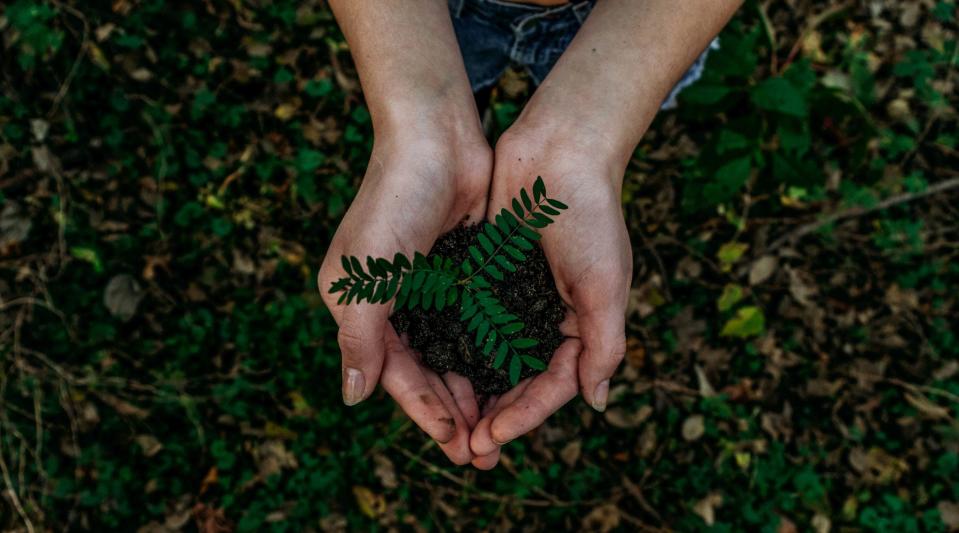Climate Impact X announces nature-based contract in upcoming carbon credit spot trading platform

Earlier this week. certifier Verra confirmed it has suspended credits from an award-winning project in Kenya.
Singapore-based carbon exchange and marketplace Climate Impact X (CIX) is set to launch a nature-based standardised contract in the company’s upcoming spot trading platform, CIX Exchange.
CIX Nature X, which will trade under the contract code CNX, is designed to address key market concerns over project delivery risk, market-representative pricing and fragmented liquidity in the voluntary carbon market.
“Validated through extensive industry consultation, Nature X will deliver a market-driven price benchmark, with enhanced transparency benefitting the industry at large,” says CIX in a March 23 press release.
At launch, Nature X represents a curated delivery basket of 11 “globally-accepted” carbon credit projects that support Reducing Emissions from Deforestation and Forest Degradation, the conservation and sustainable management of forests, and the enhancement of forest carbon stocks; also known as REDD+.
Combined, these 11 projects from across the Americas, Africa and Asia account for close to two-thirds of all global REDD+ market volume.
Nature X will contain four tradable contracts at inception, each representing credit vintages over a fixed period of four years between 2016 and 2022.
Each lot of CNX equates to 1,000 carbon credits, where each credit represents one tonne of reduced or avoided carbon dioxide from the verified projects.
Julien Hall, pricing director at CIX, says the company is creating a more fungible spot contract, which mitigates risk.
This will ultimately enable more market participants to transact with confidence and accuracy, he adds. “Bids, offers and trades of the Nature X contract by core market participants in a concentrated daily trading session will shine a clear light on market value. This nexus of price formation and liquidity will underpin a robust and representative nature-based spot benchmark, which should build confidence in fairly-priced project differentials, forward contracts and ultimately futures.”
CIX is jointly established by DBS Bank D05, Singapore Exchange (SGX Group) S68, Standard Chartered and Temasek.
Chris Leeds, head of carbon markets development at Standard Chartered, says a standardised benchmark will help to boost market liquidity and channel funds to emissions-reduction projects. “By bringing together similar high-integrity nature-based projects, we expect to see a consensus price emerge and a fair value ascertained for these and similar projects. Such a development will inspire confidence and encourage more participants to enter the carbon markets.”
The projects with credits eligible for delivery into CNX’s contract are:
The Kasigau Corridor REDD Project Phase ll – The Community Ranches, Kenya
Rimba Raya Biodiversity Reserve Project, Indonesia
The Mai Ndombe REDD+ Project, Democratic Republic of the Congo
Cordillera Azul National Park REDD Project, Peru
REDD in Tambopata National Reserve and Bahuaja-Sonene National Park, Brazil
The Envira Amazonia Project – A Tropical Forest Conservation Project in Acre, Brazil
Katingan Peatland Restoration and Conservation Project, Indonesia
REDD+ Project for Caribbean Guatemala: The Conservation Coast, Guatemala
Reduced Emissions from Deforestation and Degradation in Keo Seima Wildlife Sanctuary, Cambodia
Southern Cardamom REDD+ Project, Cambodia
Rio-Anapu Pacaja REDD Project, Brazil
Verra suspends Kenya project
The carbon credits sector has drawn flak of late after a Guardian article alleged that more than 90% of rainforest carbon offsets by Verra, the world’s biggest certifier, are “worthless”.
Unveiled in January, The Guardian’s nine-month investigation also involved the German weekly Die Zeit and SourceMaterial, a non-profit investigative journalism organisation. The investigation and article take issue with elements of the methodology and the calculations used to determine emissions reductions.
Washington-based Verra has disputed these claims, but promised to re-examine its methodologies.
CIX’s announcement comes just days after Verra confirmed it has suspended credits from an award-winning project in Kenya, citing a “quality control review”. According to US-based non-profit conservation and environmental science news site Mongabay, Verra has pulled the plug on its Northern Kenya Grassland Carbon Project, which has been generating credits since 2021.
Managed by Northern Rangelands Trust (NRT), a Kenya-based conservation group, the project was touted as the “world’s largest soil carbon removal project”, promising to remove 50 million metric tonnes of carbon dioxide from the atmosphere over a 30-year period.
The project was awarded Triple Gold distinction by the Climate, Community & Biodiversity Alliance at last year’s COP27 climate conference.
The project spans 1.9 million ha of savannah, covering nearly 10% of Kenya. According to Mongabay, NRT shares a portion of tourism revenue with indigenous managers, funding rangers and other support staff who monitor wildlife and biodiversity in the area and keep hunters away.
However, a March 16 report by indigenous rights advocacy group Survival International found that third-party validators hired to assess the project had flagged more than 100 queries about the validity of the project.
NRT, in turn, told Mongabay that the exposé “uses scant cherry-picked evidence to question an exceptionally complex and detailed model”.
As part of a cover story by this publication on global scrutiny of carbon markets, a CIX spokesperson provided a statement to The Edge Singapore in February.
Carbon markets are not perfect, said Genevieve Soh, head of platforms and ecosystems at CIX. “But just because something can be done wrong, doesn’t mean it can’t be done right.”
CIX welcomes increased scrutiny, which is crucial to hold the market accountable, said Soh to The Edge Singapore last month. “It encourages continuous improvements in the underlying technologies and methodologies that help to safeguard market integrity, all of which are important to build trust. We must recognise that today’s low-carbon technologies are unlikely to be enough to limit global warming to 1.5°C.”
“Carbon markets can be a valuable instrument to bridge this gap,” added Soh, “especially in the near term.”
See Also:
Click here to stay updated with the Latest Business & Investment News in Singapore
World's largest timberland investment manager explains why it invests
IETA responds to The Guardian's claims that carbon offsets are 'worthless'
Get in-depth insights from our expert contributors, and dive into financial and economic trends

 Yahoo Finance
Yahoo Finance 